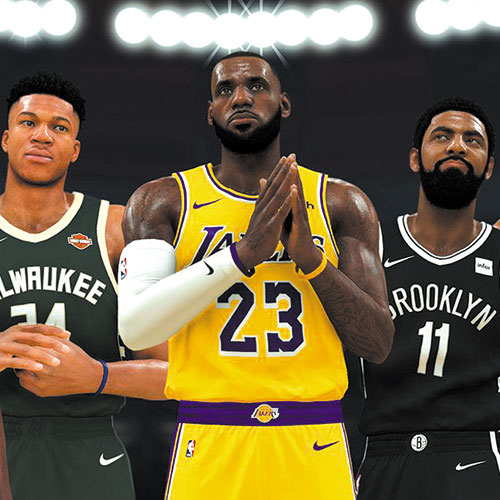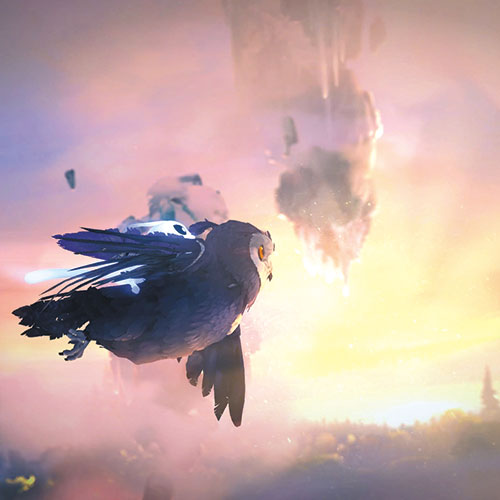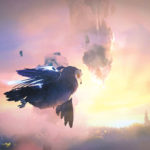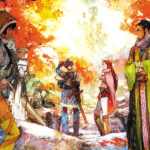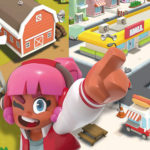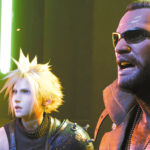An Indie game Zelda fans shouldn’t pass up
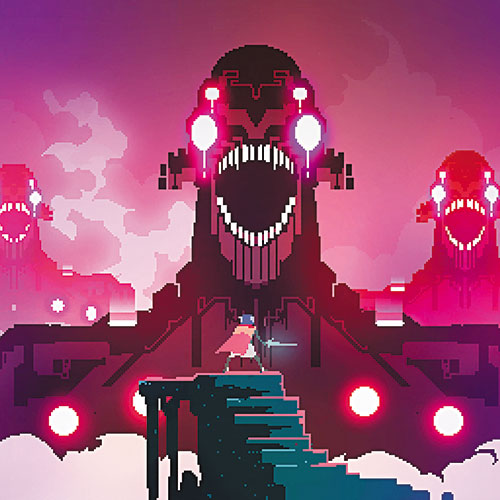
By Kyle Hilliard | Game Informer Magazine
Hyper Light Drifter
Style: 1-Player Action
Platform: PC, Mac
Publisher: Heart Machine
Developer: Heart Machine
Rating: NR
From its opening cutscene, “Hyper Light Drifter” created a world I immediately wanted to know more about. Titans walk along the landscape, but immediately turn into dilapidated robots before your eyes. The drifter clutches his chest as a violent cough causes him to buckle over. The montage and its soundtrack from composer Disasterpeace sent chills down my spine and caused me to involuntarily lean into my computer monitor — and that was only the first three minutes.
The game plays like a classic “Zelda” from an overhead 2D perspective, but the Drifter moves with a speed Link could never hope to achieve. He fights with a sword and gun, and uses the invaluable ability to quickly dash in any direction. Dashing is integral to exploration and combat as the Drifter blinks across chasms and dashes from enemy to enemy while avoiding their attacks. It’s not a matter of mastering combos or mashing buttons, as the Drifter only has one slashing sword attack. Success is tied to moving in for a quick attack, getting out of the way with a dash, and finding another angle to drive in before the enemy has an opportunity to counter. Guns help expand your arsenal by giving you long- and mid-range options to mix in with your slashes and footwork. Mobility and speed are required, and the controls are able to keep up with the pace. Combat is fluid and fun, and I quickly had an empowering level of mastery over each encounter. I always felt as though I was in full control, even while bouncing at light speed between opponents, only pausing briefly to use a health item when necessary.
Fighting is fast and often difficult. Your health is limited and every enemy packs a wallop, but so do you, leading to a firm-but-fair rhythm to the action. Forgiving checkpoints help alleviate frustration, giving you plenty of opportunities to master a scenario with quick restarts and no fear of lost progress. This extends to the difficult bosses, as well. They all offer distinct challenges and designs; some have abilities comparable to the Drifter, while others focus on specific weapon loadouts. Each has enticing rewards, like new guns and upgrade currency. Quick restarts make the bosses fun to break down, since you barely get a chance to catch your breath after each death before you are back in the scuffle learning their patterns and applying your knowledge.
Upgrades are purchased with a currency earned exploring the environment. Every upgrade is worthwhile, subtly changing how you approach combat. You can unlock bombs, the ability to continually dash, and a power that makes your sword absorb enemy gunfire. The upgrades fit comfortably into the arsenal of moves you begin the game with; you don’t unlock new combos or change your playstyle with different swords. Instead, you improve the skills you’ve been mastering since the game’s opening moments. You become an expert instead of someone who happens to suddenly hit harder or have more HP.
I can’t describe the moment-to-moment plot of “Hyper Light Drifter.” It takes place in a land that seems to have taken technology too far and paid a steep price. The world is morose and sad, with only a few small pockets of happiness strewn across its diverse environments. Both the direction you decide to explore in the game’s beginning and the narrative are open to interpretation. This can have the potential to create a confounding experience, but I never felt without direction, or like I had missed important narrative concepts tucked behind some hidden door. I appreciate the ambiguity of the narrative because it sold me an emotion about what happened in this world, as opposed to showcasing a list of specific events. It’s a format of storytelling uniquely suited to video games, because players can move through and take in the world at their own pace. The closing moments left me with a calm-but-melancholy sense of overwhelming accomplishment.
“Hyper Light Drifter” has already positioned itself as one of the best experiences of the year. It’s a challenging game, but it never feels unfair. The promise of seeing more of the world and hearing more of the fantastic soundtrack are worthwhile rewards for your tenacity. Despite seeing the finish line ahead of me, I did everything I could to prolong the experience by exploring every nook and cranny. I didn’t do it out of necessity; I did it because I wanted to stay in “Hyper Light Drifter’s” world for as long as possible.




